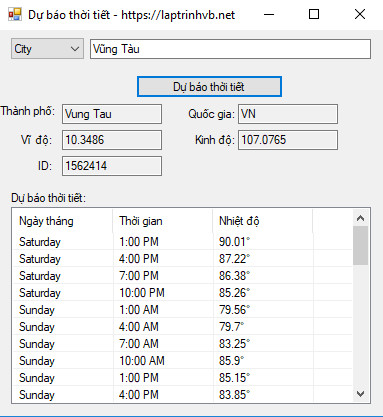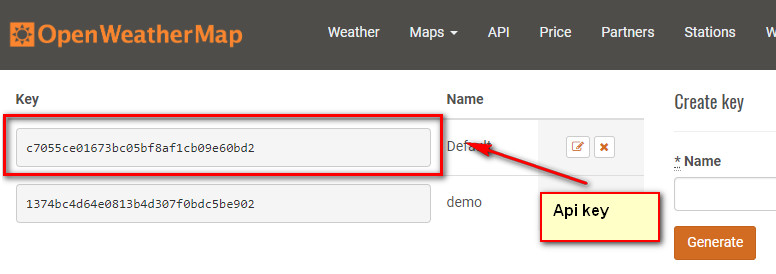- Phần mềm làm mờ tin nhắn Zalo PC trên Desktop - Bảo mật và chống nhìn trộm - Chặn đang soạn tin nhắn
- KHI SỰ TINH GIẢN LÀ ĐỈNH CAO CỦA CÔNG NGHỆ BÁN HÀNG 2026 - PHẦN MỀM BÁN HÀNG BASYS
- Phần mềm bán hàng cho hộ kinh doanh BASYS đơn giản ít thao tác
- [C#] Hướng dẫn tích hợp thêm menu vào System menu của ứng dụng
- [DEVEXPRESS] Hỗ trợ tìm kiếm highlight không dấu và không khoảng cách trên Gridview Filter
- [C#] Chia sẻ source code phần mềm Image Downloader tải hàng loạt hình ảnh từ danh sách link url
- [C#] Chụp hình và quay video từ camera trên winform
- [C#] Chia sẽ full source code tách file Pdf thành nhiều file với các tùy chọn
- Giới thiệu về Stock Tracker Widget - Công cụ theo dõi cổ phiếu và cảnh báo giá tăng giảm bằng C# và WPF
- [VB.NET] Chia sẻ công cụ nhập số tiền tự động định dạng tiền tệ Việt Nam
- [VB.NET] Hướng dẫn fill dữ liệu từ winform vào Microsoft word
- [VB.NET] Hướng dẫn chọn nhiều dòng trên Datagridview
- Hướng Dẫn Đăng Nhập Nhiều Tài Khoản Zalo Trên Máy Tính Cực Kỳ Đơn Giản
- [C#] Chia sẻ source code phần mềm đếm số trang tập tin file PDF
- [C#] Cách Sử Dụng DeviceId trong C# Để Tạo Khóa Cho Ứng Dụng
- [SQLSERVER] Loại bỏ Restricted User trên database MSSQL
- [C#] Hướng dẫn tạo mã QRcode Style trên winform
- [C#] Hướng dẫn sử dụng temp mail service api trên winform
- [C#] Hướng dẫn tạo mã thanh toán VietQR Pay không sử dụng API trên winform
- [C#] Hướng Dẫn Tạo Windows Service Đơn Giản Bằng Topshelf
[C#] Hướng dẫn lấy dữ liệu dự báo thời tiết từ OpenWeatherMap Api
Xin chào các bạn, hôm nay mình sẽ hướng dẫn cho các bạn lấy dữ liệu dự báo thời tiết sử dụng API OpenWeatherMap C# hoàn toàn miễn phí trong lập trình Winform.
OpenWeatherMap API này cung cấp dịch vụ dữ liệu thời tiết và dự báo miễn phí, thích hợp cho bất kỳ dịch vụ bản đồ như các ứng dụng web và điện thoại thông minh. Ý tưởng được lấy cảm hứng từ OpenStreetMap và Wikipedia nhằm cung cấp thông tin miễn phí và sẵn có cho mọi người.
OpenWeatherMap cung cấp nhiều dữ liệu thời tiết như bản đồ thời tiết hiện tại, dự báo tuần, lượng mưa, gió, mây, dữ liệu từ các trạm thời tiết và nhiều thứ khác. Dữ liệu thời tiết được nhận từ các dịch vụ phát sóng khí tượng toàn cầu và hơn 40.000 trạm khí tượng.
Bạn có thể nhận được bất kỳ dữ liệu thời tiết nào cho ứng dụng của bạn bằng cách sử dụng chuỗi JSON hoặc XML.
Giao diện ứng dụng dự báo thời tiết c#:

Để làm được bài này, rất đơn giản đầu tiên các bạn truy cập vào trang web openweathermap để đăng ký một tài khoản và lấy API để truy vấn.
Link đăng ký Api openweathermap: http://home.openweathermap.org/users/sign_in
Sau khi đăng ký xong, các bạn chọn tab Api để lấy Api key điền vào ứng dụng ở source code C# bên dưới.

Source code C#:
using System;
using System.Collections.Generic;
using System.ComponentModel;
using System.Data;
using System.Drawing;
using System.Linq;
using System.Text;
using System.Windows.Forms;
using System.Net;
using System.Xml;
using System.IO;
using System.Globalization;
namespace dubaothoitiet
{
public partial class Form1 : Form
{
public Form1()
{
InitializeComponent();
}
// http://home.openweathermap.org/users/sign_in -- link đăng ký lấy API
private const string API_KEY = "c7055ce01673bc05bf8af1cb09e60bd2";
private const string CurrentUrl =
"http://api.openweathermap.org/data/2.5/weather?" +
"@QUERY@=@LOC@&mode=xml&units=imperial&APPID=" + API_KEY;
private const string ForecastUrl =
"http://api.openweathermap.org/data/2.5/forecast?" +
"@QUERY@=@LOC@&mode=xml&units=imperial&APPID=" + API_KEY;
private string[] QueryCodes = { "q", "zip", "id", };
private void Form1_Load(object sender, EventArgs e)
{
cboQuery.Items.Add("City");
cboQuery.Items.Add("ZIP");
cboQuery.Items.Add("ID");
cboQuery.SelectedIndex = 0;
}
private void btnForecast_Click(object sender, EventArgs e)
{
string url = ForecastUrl.Replace("@LOC@", txtLocation.Text);
url = url.Replace("@QUERY@", QueryCodes[cboQuery.SelectedIndex]);
using (WebClient client = new WebClient())
{
try
{
DisplayForecast(client.DownloadString(url));
}
catch (WebException ex)
{
DisplayError(ex);
}
catch (Exception ex)
{
MessageBox.Show("Unknown error\n" + ex.Message);
}
}
}
private void DisplayForecast(string xml)
{
XmlDocument xml_doc = new XmlDocument();
xml_doc.LoadXml(xml);
XmlNode loc_node = xml_doc.SelectSingleNode("weatherdata/location");
txtCity.Text = loc_node.SelectSingleNode("name").InnerText;
txtCountry.Text = loc_node.SelectSingleNode("country").InnerText;
XmlNode geo_node = loc_node.SelectSingleNode("location");
txtLat.Text = geo_node.Attributes["latitude"].Value;
txtLong.Text = geo_node.Attributes["longitude"].Value;
txtId.Text = geo_node.Attributes["geobaseid"].Value;
lvwForecast.Items.Clear();
char degrees = (char)176;
foreach (XmlNode time_node in xml_doc.SelectNodes("//time"))
{
DateTime time =
DateTime.Parse(time_node.Attributes["from"].Value,
null, DateTimeStyles.AssumeUniversal);
XmlNode temp_node = time_node.SelectSingleNode("temperature");
string temp = temp_node.Attributes["value"].Value;
ListViewItem item = lvwForecast.Items.Add(time.DayOfWeek.ToString());
item.SubItems.Add(time.ToShortTimeString());
item.SubItems.Add(temp + degrees);
}
}
private void DisplayError(WebException exception)
{
try
{
StreamReader reader = new StreamReader(exception.Response.GetResponseStream());
XmlDocument response_doc = new XmlDocument();
response_doc.LoadXml(reader.ReadToEnd());
XmlNode message_node = response_doc.SelectSingleNode("//message");
MessageBox.Show(message_node.InnerText);
}
catch (Exception ex)
{
MessageBox.Show("Unknown error\n" + ex.Message);
}
}
}
}
HAVE FUN :)


